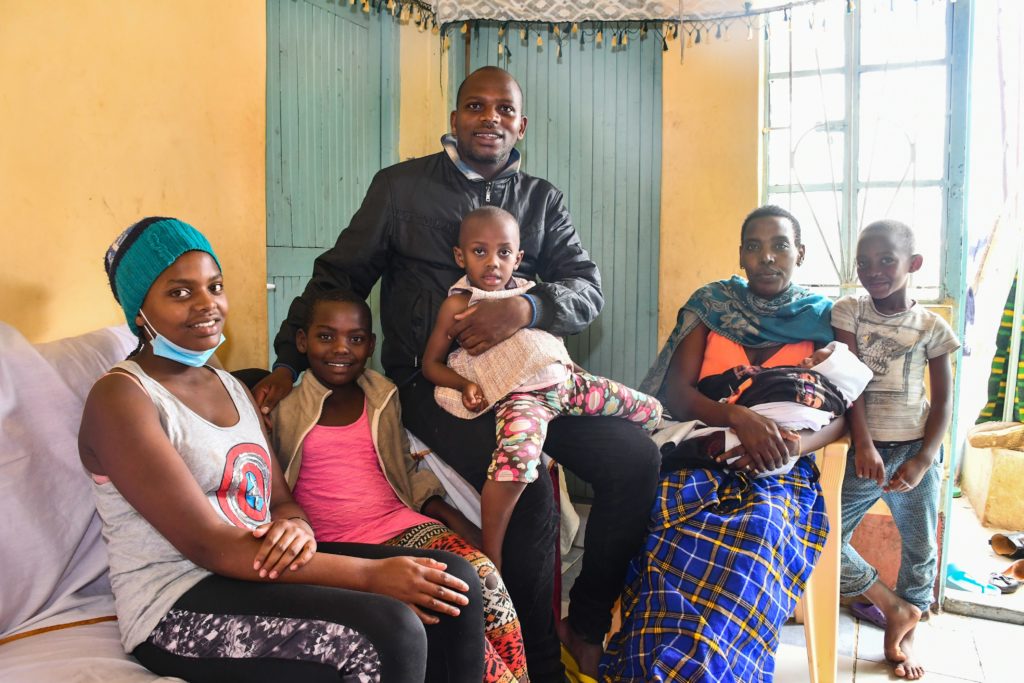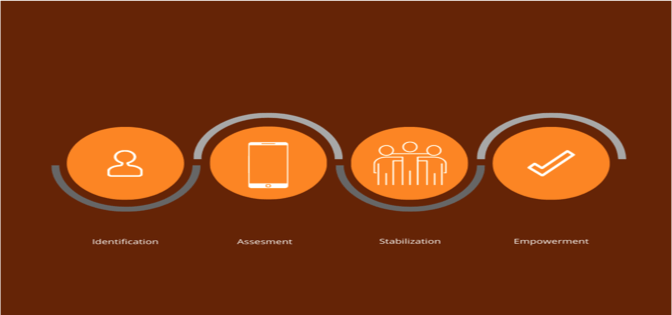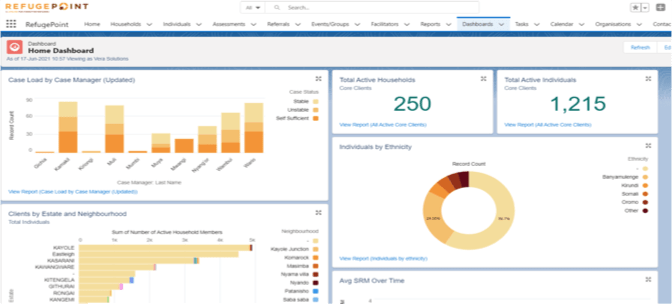
Search
August 17, 2021
Elaine Chang
Two statistics stood out as I prepared for a webinar to recognize World Refugee Day by highlighting TaroWorks client RefugePoint’s use of mobile technology to support its refugee case management system.
“Every minute, 20 people leave everything behind to escape war, persecution or terror,” according to the United Nations.
“The average time a refugee remains a refugee is estimated at 20 years and counting,” says RefugePoint.
The sheer volume of refugees and the challenge of quickly getting them the right services to help households become self-reliant prompted RefugePoint to think about converting its assessment and refugee case management system from pen, paper, and spreadsheet to a digital mobile and cloud-based solution.

Paul Karanja, RefugePoint’s Urban Program Coordinator based in Kenya, outlined during the webinar the steps his organization took – with help from our partner Vera Solutions – to achieve such digitization and how using TaroWorks’ mobile field service app and companion Salesforce.com cloud CRM have reduced the time it takes to provide services while better coordinating team efforts.
RefugePoint is a humanitarian agency that develops “lasting solutions for the world’s most at-risk refugees” by offering resettlement assistance, building self-reliance through training, and supporting “the humanitarian community to do the same.” (Learn More)
According to RefugePoint, with few of the world’s refugees able to return home, legally settle in the country to which they’ve fled or resettle in a third country, “Self-reliance involves stabilizing refugees in the countries to which they have fled and helping them regain the social and economic ability to meet their essential needs and reduce dependence on assistance.” (Read More)
Paul explained during the webinar that the path to self-reliance flows through a four-step refugee case management approach, which involves identifying the “family that is falling through the cracks of humanitarian support” and then assessing “the different capacities existing in the household.”
A third and important focus of RefugePoint’s work with the refugee household is “stabilization” and involves providing the basic necessities like food, shelter, health services to address trauma and medical issues as well as connecting the refugee family to nearby schools for its children.
Once the family is stabilized, they reach the fourth and final “empowerment” phase with “more advanced conversations around… livelihoods, around income generation” business training and possibly grants to start a business in hopes they can eventually “supply the household needs without needing further assistance from organizations,” Paul said. (More on RefugePoint’s Self-Reliance Runway approach)

Prior to working with TaroWorks and Vera Solutions, RefugePoint had a dispersed refugee case management system, which relied on a Microsoft Access database hosted on one local server, Excel spreadsheets, and whatever information was stored on each team member’s computer.
The paper-based data collection and refugee case management method made it harder to respond quickly to ever-changing client needs and didn’t allow access to a common set of key metrics for staff. Through discovery workshops, Vera Solutions identified these and other pain points and then configured the Salesforce database to track the actual refugee case management workflow and allow staff to view and analyze centralized data.
RefugePoint field team members were each equipped with the TaroWorks offline mobile field service app, connecting all mobile devices to Salesforce. The TaroWorks app was built for RefugePoint field staff to log data and case notes for a number of stages in its four-step self-reliance process.
For example, information collected during initial interviews with refugee families is fed into the organization’s “self-reliance measurement tool” recreated in Salesforce. The evaluation tool produces a score that helps determine which families are most in need of assistance. When a family scores high enough to need help, it triggers an alert sent via Salesforce to RefugePoint supervisors who then assign the family a case manager and establish a case plan in Salesforce.
Further data about this household is collected in the field using TaroWorks, even if the field team member is not within range of internet or mobile data service since the app works offline and syncs back to Salesforce when connectivity is available. Analyzed data determines which services are initiated – like providing food for the family. The mobile app comes back into use when the food is delivered, as recipients provide a digital signature on TaroWorks to acknowledge receipt.
Like many TaroWorks clients, RefugePoint adapted its fieldwork during the Covid-19 pandemic to stay connected with families it serves, while helping ensure staff health.

“We have moved to supporting clients mainly through digital platforms,” Paul said. “Most of our services now can be delivered using those digital connections and of course premised on the fact that Salesforce and TaroWorks…are cloud-based (so) you can work from anywhere.”
Steps taken by RefugePoint to adjust refugee case management to Covid-19 conditions include making contacts with refugees by mobile phone, employing tele-medicine and using similar techniques for client counseling, conducting business development skill training online, and sending bulk SMS messages.
Paul said benefits of applying mobile and cloud technology to the refugee case management effort include:

Paul also outlined some of his lessons learned by RefugePoint having gone through the process of digitizing refugee case management.
But as Paul concluded:
“I would say above all, just be willing to explore new possibilities. There is a lot these platforms can offer.”
POST TOPICS
Sign up to receive emails with TaroWorks news, industry trends and best practices.
TaroWorks, a Grameen Foundation company.
Site by V+V